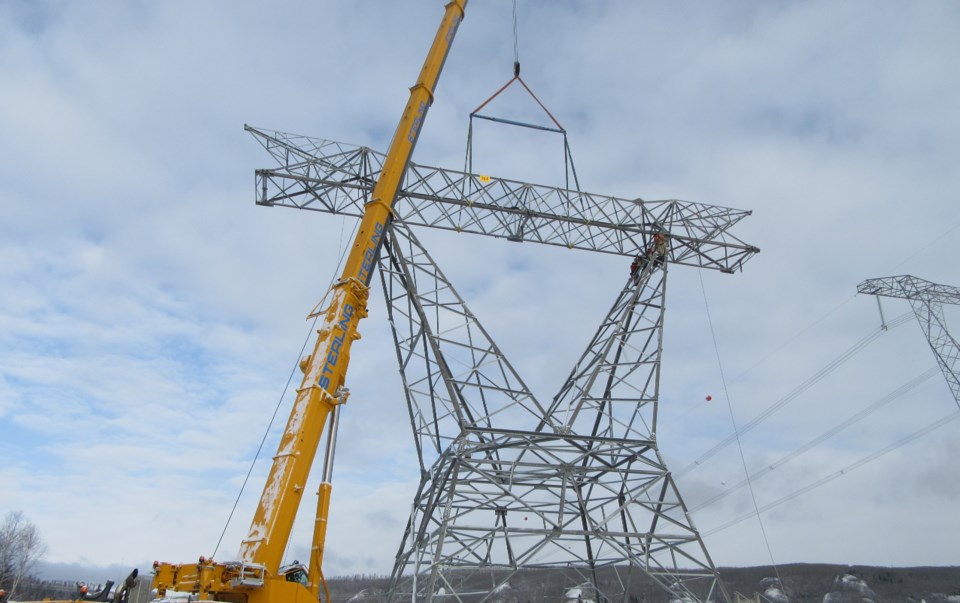A B.C. Conservative government would avoid costly investments in power transmission by allowing Northwest B.C. communities to generate power locally with natural gas and wood waste, the Conservative Party of B.C. says in its latest election plank on energy.
While thermal power from wood waste might be considered renewable, generating power from natural gas turbines might require amending acts like CleanBC and the Clean Energy Act, depending on the amount of power generated and the amount of natural gas used.
Communities like Kitimat, Terrace, Smithers and Prince Rupert are facing rising energy costs, B.C. Conservative Leader John Rustad said in a press release.
As part of $36 billion worth of investments that BC Hydro plans to make over 10 years on transmission and distribution,$ 3.5 billion is earmarked for the expansion of high-voltage transmission lines between Prince George and Terrace to bring more hydro power to the northwest.
A cheaper alternative would be to allow power to be generated locally with thermal power, using wood waste and-or natural gas, Rustad said.
“The solution is to increase local power generation in the Northwest to bring down costs and increase energy security,” said Rustad. “It’s not building costly power lines from the northeast that would raise costs for BC Hydro customers across the province.”
“Ratepayers do not need to spend more on another boondoggle project by David Eby’s NDP in the form of unneeded power lines from the Northeast. Instead we’ll generate the power locally and save British Columbians millions in energy costs.”
Clean Energy Canada program manager Evan Pivnick notes that the B.C. government only recently amended the Clean Energy Act to change the targets for renewable electricity in B.C., so Rustad's plan to allow power to be generated from natural gas might require the recent amendments to be repealed.
Under the Clean Energy Act, a small amount of power generated from natural gas was allowed in B.C.
"There is a very small amount of natural gas that still is on B.C.'s grid," Pivnick told BIV News.
There is one natural gas thermal power plant on Vancouver Island and one co-generation plant that uses natural gas, Pivnick noted.
Until just this year, the Clean Energy Act required that 93 per cent of power generated in B.C. had to come from renewable sources. But in February, the B.C. government announced that that target would be moved to 100 per cent by 2030, which would rule out any new power sources from non-renewables like natural gas.
So to allow for thermal power from natural gas, the Clean Energy Act might have to be amended again to remove the new 100 per cent target.
Barry Penner, chairman of the Energy Futures Initiative, thinks the Conservative plan has merit, as B.C. may need thermal power, if only as a backup during periods of drought when hydro-electric power production falls.
He said the downturn in the forestry sector and closure of sawmills is resulting in less and less wood waste be available, so biomass energy may not be very reliable. Natural gas power would be, on the other hand.
“Natural gas probably has more near-term potential to be an economically viable and reliable,” Penner said.
"Yes changes would need to be made to our energy act to allow for more thermal generation, but as we've seen, BC Hydro's been using more thermal (electricity). Even this summer, they've been natural gas power plant on Vancouver Island basically full tilt in July and August. Under the CleanBC plan, that option will follow off the table."




